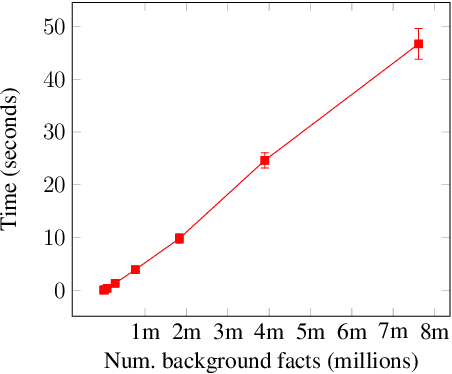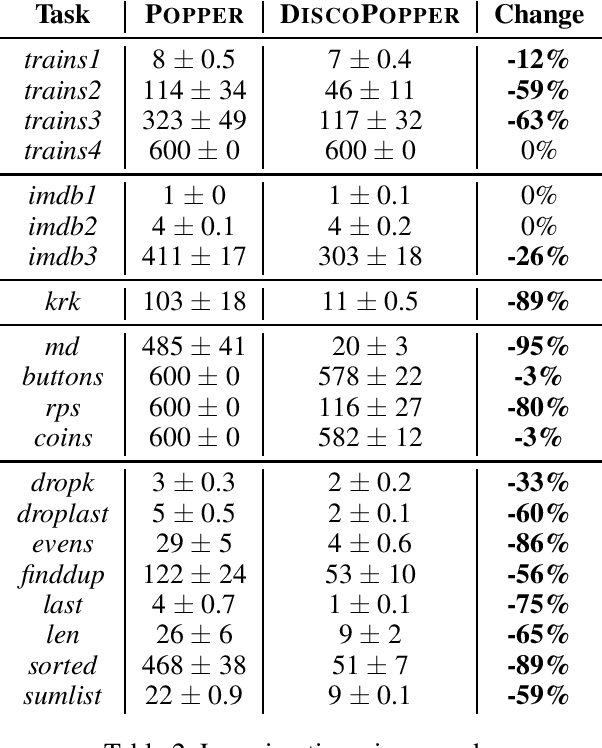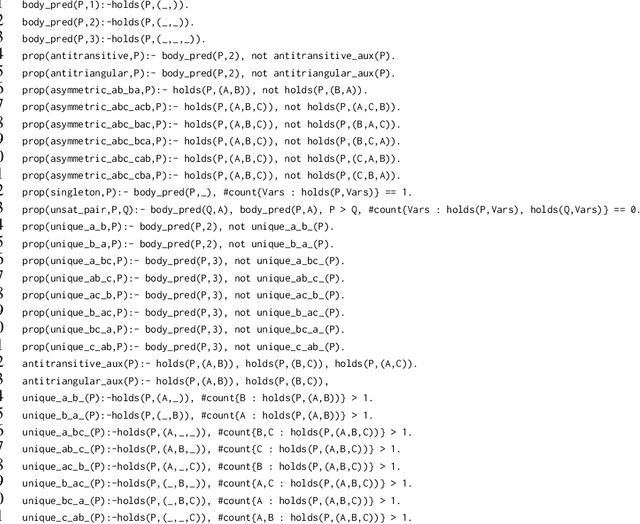Learning logic programs by discovering where not to search
Paper and Code
Feb 20, 2022



The goal of inductive logic programming (ILP) is to search for a hypothesis that generalises training examples and background knowledge (BK). To improve performance, we introduce an approach that, before searching for a hypothesis, first discovers `where not to search'. We use given BK to discover constraints on hypotheses, such as that a number cannot be both even and odd. We use the constraints to bootstrap a constraint-driven ILP system. Our experiments on multiple domains (including program synthesis and inductive general game playing) show that our approach can substantially reduce learning times.
* Rejected for IJCAI22 with the helpful and delightful review of
"authors seem ok"
 Add to Chrome
Add to Chrome Add to Firefox
Add to Firefox Add to Edge
Add to Edge